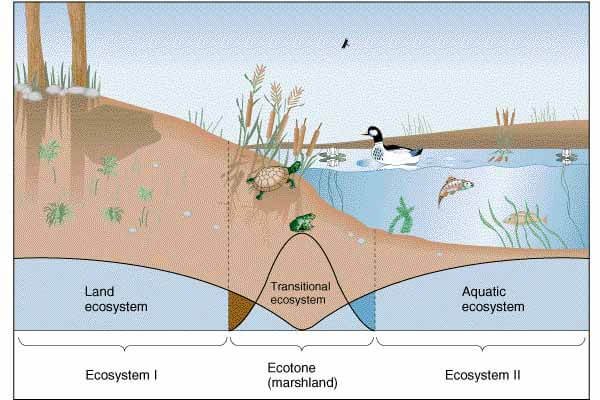France’s Riots: Rise the Megacity?
As the French July riots unfold, everyone focus on law and order issues. But this is not the first such riot. This suggests that the trouble is more systemic.
Systemic in the sense that the modern city itself, in its current structure, may not be sustainable.
The city, as it evolved, is no longer sustainable; by evolving into a megacity, it got rid of what made it happen in the first place.
It got it of the Edges.
Innovation happens at the edges. In society, in science, or in farming, the edge becomes an ecosystem where different systems interact and come up with useful solutions. This "edge effect" happens wherever there is no "hard border" between the systems.
In society, "borderlands" or "buffer states" sometimes emerge between countries. They are places of innovation and trade, both admired and resented by their immediate neighbors and brethren; this is the case of Lebanon, which thrived on linking the Middle East to Europe, or Ukraine, which evolved a rich culture and significant technical innovations. Even within states, ancient cities had those undefined neighborhoods just outside their walls; families who lived there often had names derived from "brave", as they lived outside the protection of the fortifications.
Dubrovnik: Inside & Outside the city walls.
In nature, a "bocage" emerges wherever there is no “hard border” between one field and the next one, or between one field and the “outside” natural system. In those regions, farmers make little effort made to keep out “pests”, as this may also keep out beneficial elements. In the “bocage” that emerges, two ecosystem meet and interact, with species flowing from one to the other, and even some appearing that would be found in neither.
Ecosystem in the edge zone
Ecosystem in the edge zone
The "edge effect" promotes a positive feedback loop without the need of excessive outside inputs. The system evolves and grows, creating a localized “ecosystem shift” that generates “multiplicative” beneficial effects, both socially and ecologically. The benefits extend beyond the edge itself.
...some even turn into fortresses, but that's another story.
Socially, all this adds up to “trickle-up” beneficial effects, since agriculture is often an “entry level” sector of activity. It often employs people with "limited" skills from the perspective of the formal economy, but that's still half the population of many poorer countries. Encouraging local farming has a large positive effect on the society. Increasingly, this "unskilled" population is able to innovate the most. Smaller-scale operations are no longer limited to food production, thanks to new technologies in power generation, additive manufacturing, or even medicine.
The tax collector and the bureaucrat do not see it. But their perspective should not matter.
"Whatever you do, work heartily, as for the Lord and not for men, knowing that from the Lord you will receive the inheritance as your reward"

